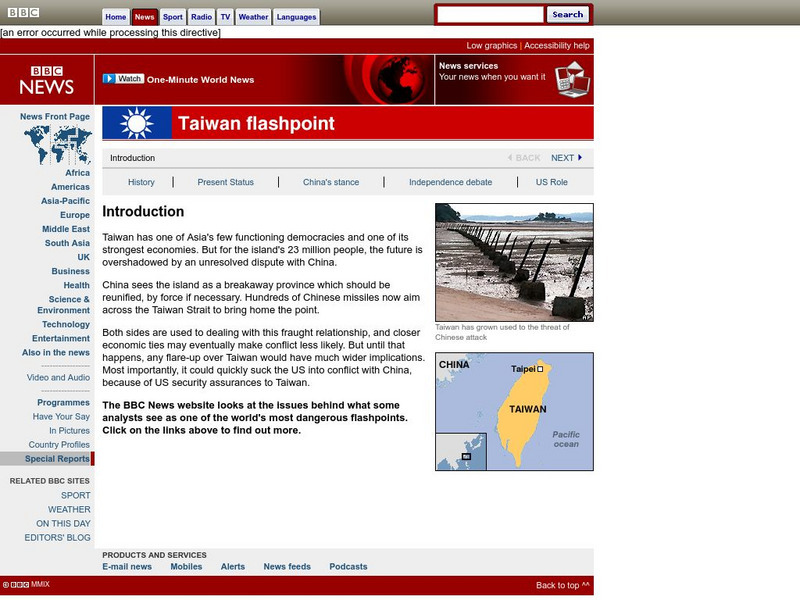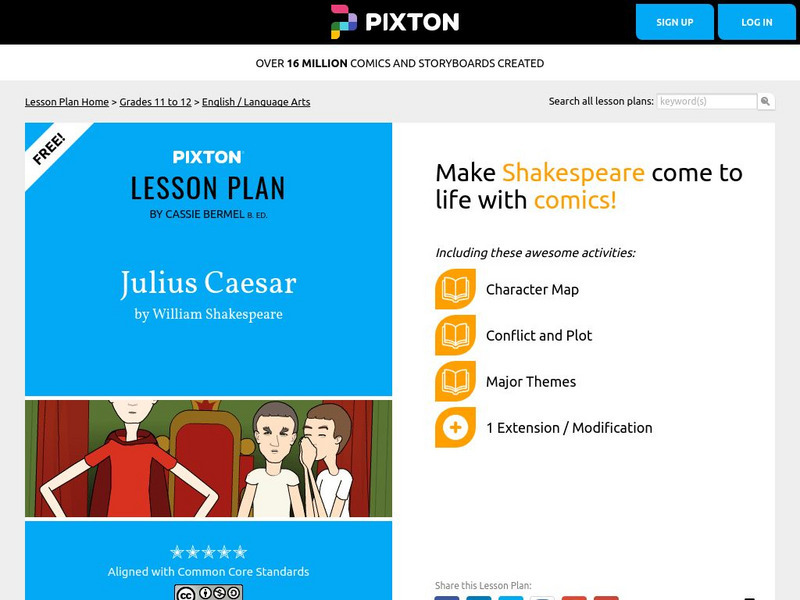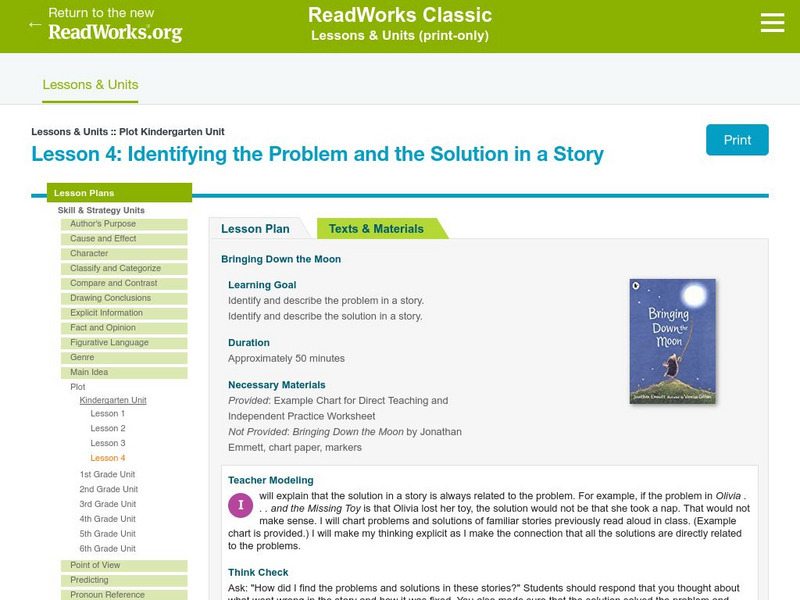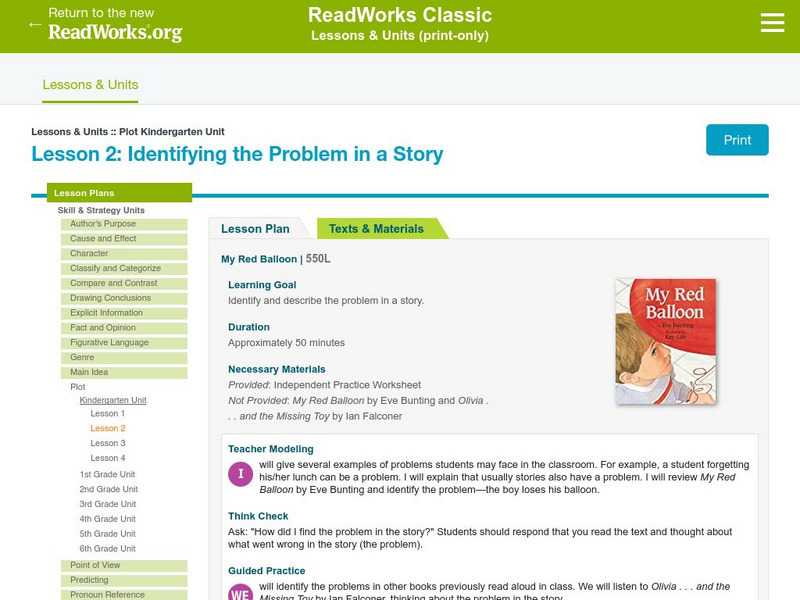Read Works
Read Works: Plot 1st Grade Unit
[Free Registration/Login Required] A series of three lesson plans designed to teach students to identify problems and solutions in fiction text and to retell a story's problem and solution in sequence. Students learn to identify the plot...
Read Works
Read Works: Plot 3rd Grade Unit
[Free Registration/Login Required] A series of four lesson plans designed to teach students to predict problems and solutions in fiction text and to identify the relationship between problems and character conflicts within a story....
Centers for Disease Control and Prevention
Centers for Disease Control: Bam! Guide to Getting Along
Learn how to handle situations and problems the right way without getting out of control, overly mad, or even violent. This sight teaches you the "Bam" plan, or tips "to keep your anger from boiling over".
Other
Work 911: Cooperative Communication
This site defines "Cooperative Communication" and provides examples and information as to how to apply it. Although the article is geared toward the workplace, it applies to all forms of communication, especially when negotiating....
Wisconsin Response to Intervention Center
Wisconsin Rt I Center: Story Writing Frames [Pdf]
Teachers will learn how to use story writing frames with their students. Teachers will learn how to implement story frames; measure progress with story frames; and find research to support using story frames. A reproducible story frame...
ReadWriteThink
Read Write Think: Conflict Map
This graphic organizer focuses on conflict: identifying the conflict, listing possible resolutions, and determining the cause of the conflict. It can be used as a reading tool, a writing organizer, or solving a real-life conflict.
E Reading Worksheets
E Reading Worksheets: Types of Conflict Worksheets
This learning module provides remediation and extra practice with identifying types of conflict in stories. Reinforcement with identifying types of conflict in story excerpts is provided with detailed notes, four different worksheets,...
Caro Clarke
Caroclarke: Dialogue: The Best Action
This is the fourteenth article in a series published with the goal of helping the new novel author. This article focuses on using dialogue to advance the action of the story. Links on the left offer other information about story writing.
BBC
Bbc: Taiwan Flashpoint
A comprehensive site that examines the relationship between China and Taiwan with summary looks at the history of their conflict, the current status of the relationship, China's official stance, and the U.S. role in the continuing...
Texas Education Agency
Texas Gateway: Analyze the Central Characters in Literary Text/fiction
Learn how the central characters' qualities influence theme and resolution of the central conflict.
Texas Education Agency
Texas Gateway: Analyze Linear Plot Developments in Literary Texts/fiction
[Accessible by TX Educators. Free Registration/Login Required] You will learn how to use the elements of linear plot development to determine whether and how conflicts are resolved.
Texas Education Agency
Texas Gateway: Writing a Short Story With Well Developed Conflict and Resolution
Write a short story with a well-developed conflict and resolution.
Other
Pixton: Julius Caesar by William Shakespeare
This instructional activity on The Tragedy of Julius Caesar is available with a free trial registration. Students use the provided illustrated characters and props to explore character, plot, and theme.
Lumen Learning
Lumen: Reading and Interpreting Literary Texts: How to Analyze a Short Story
This lesson focuses on analyzing a short story including all of the elements of a short story such as setting, plot and structure, and characterization.
Sophia Learning
Sophia: Identity & Conflict
At the end of this tutorial, the learner will understand that identity is a major source of conflict. It includes a video on Conflict Resolution and a list of terms with definitions.
Live Wire Media
Good Character: Working Out Conflicts
Learn how to work out conflicts with others "Fairly and peacefully." This website includes simple tips to help you resolve problems, control your anger. Discuss conflict resolution with other young scholars and your parents by using the...
Quizlet
Quizlet: R.3 Analyze How and Why Individuals, Events, or Ideas, Develop/interact
Please align to CCSS.ELA-Literacy.CCRA.R.3 Analyze how and why individuals, events, and ideas develop and interact over the course of a text.
Texas Education Agency
Texas Gateway: Analyze Linear Plot Developments in Literary Texts/fiction
[Accessible by TX Educators. Free Registration/Login Required] In this lesson, you will learn how to recognize conflict, analyze linear plot, and determine how the conflict is resolved.
HotChalk
Hot Chalk: Lesson Plans Page: The Nature of the Antagonist
This lesson plan teaches young scholars to understand the differences between protagonists and antagonists, to recognize a "villain" in storytelling, and to understand conflict as used in literature.
The Newberry Library
Newberry Library: Library Exhibit: Outspoken: Chicago's Free Speech Tradition
A virtual library exhibit about free speech, focusing on the principles that unite Americans and the conflicts that divide them.
Read Works
Readworks: Lesson 4: Kgt: Identifying the Problem and the Solution in a Story
This instructional activity focuses on identifying the problem and solution in a story plot using the book "Bringing Down the Moon" by Jonathan Emmett (not included). Worksheet is provided.
Read Works
Readworks: Kindergarten Lesson 2: Identifying the Problem in a Story
This lesson plan focuses on identifying the problem or conflict in a story plot using two books (not included). Worksheets are provided.
Utah Education Network
Uen: Causes of Wwi (An Introductory Lesson)
Lesson provides an overview of the four main causes of World War I.
Committee for Children
Second Step: Grade K: Lesson 18: Handling Being Knocked Down
This lesson will help students understand how to calm down after getting hurt by another person.


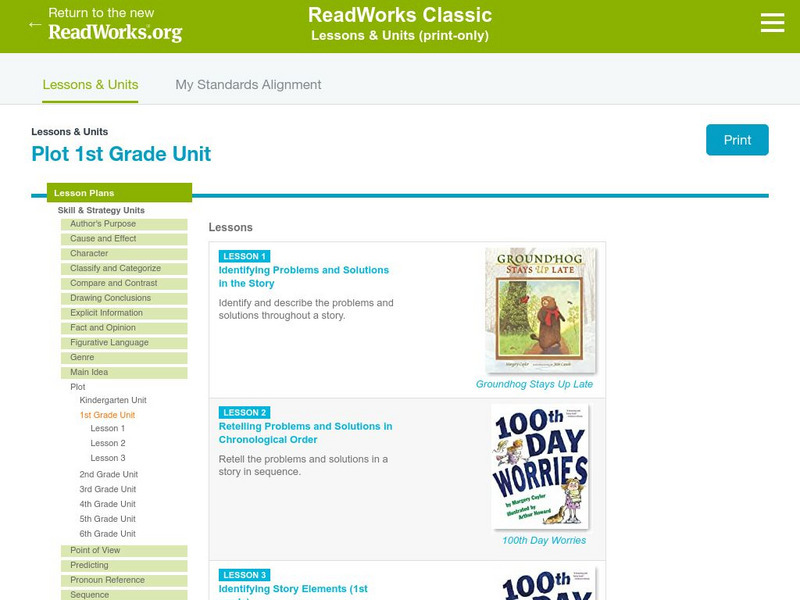
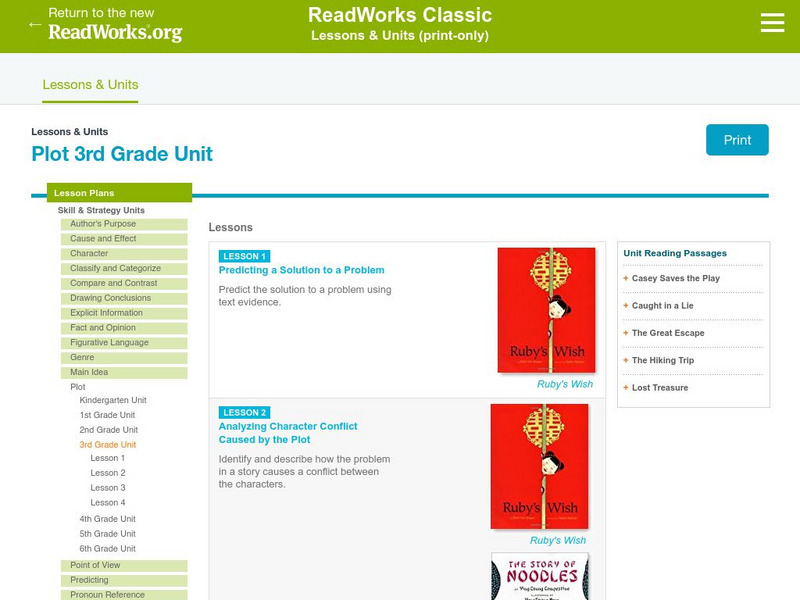
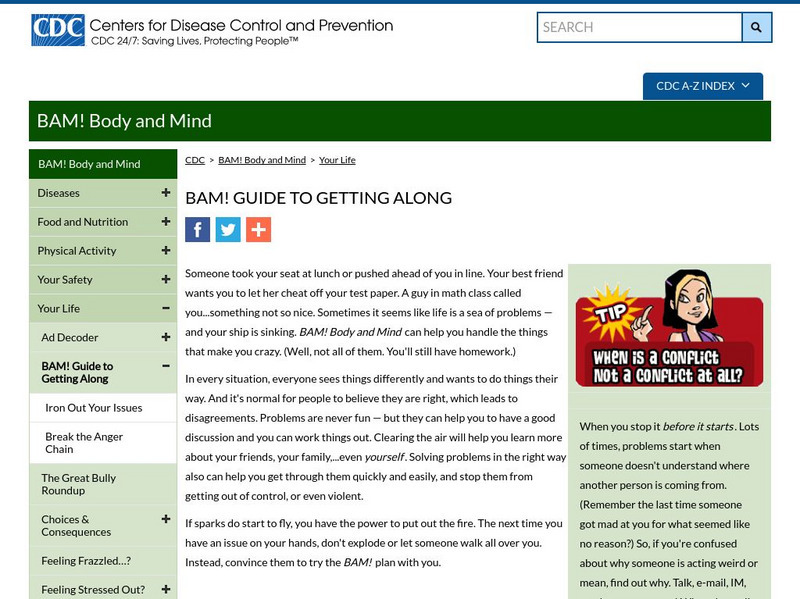
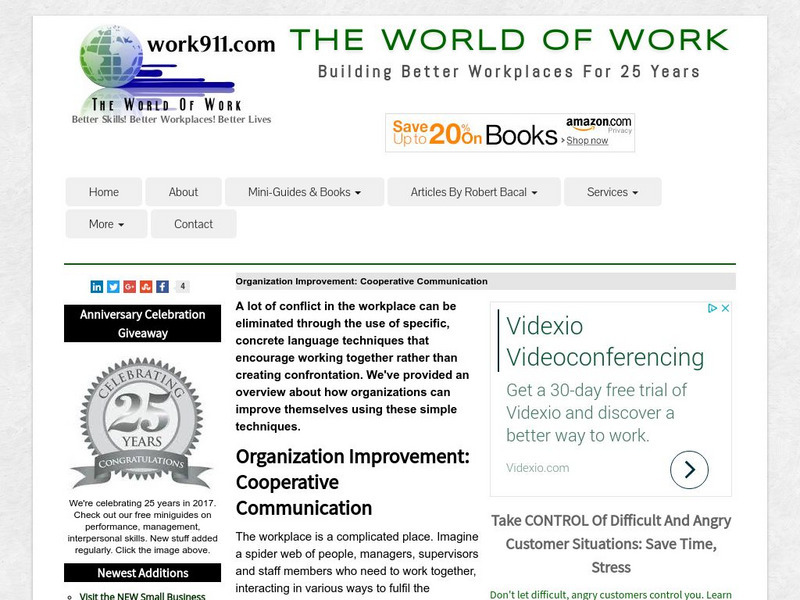
![Wisconsin Rt I Center: Story Writing Frames [Pdf] Professional Doc Wisconsin Rt I Center: Story Writing Frames [Pdf] Professional Doc](https://d15y2dacu3jp90.cloudfront.net/images/attachment_defaults/resource/large/FPO-knovation.png)


